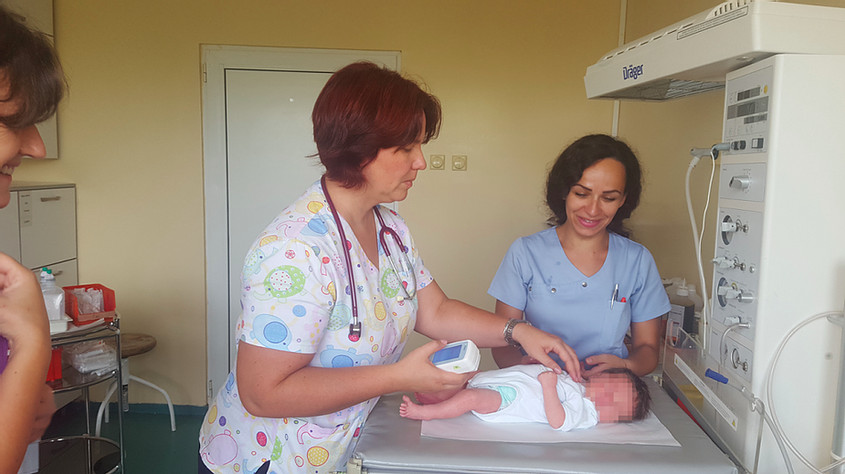One of the most common disorders affecting newborns is hyperbilirubinemia (an elevated bilirubin level in the blood). This is particularly a problem for premature babies whose brain tissue is more sensitive to the toxic effects of elevated bilirubin in the blood and are more at risk for developing brain damage and hearing loss. The standard procedure for the patient is to have a bilirubin level measured on average 3 times per day for 3 days.
Before our visit, the hospital was able to measure bilirubin levels from blood obtained via venous or capillary puncture, which is quite painful for the child and can lead to fear, stress and sleep disorders. Also, this method exposes the children to a risk of infection. Annually, about 1,650 laboratory tests of bilirubin level are performed, which inflates hospital costs. The use of a transcutaneous bilirubinometer could easily improve the outcome associated with the diagnosis and treatment of these children. Not only is this instrument less traumatic to children, but it also represent a cost savings of $1,200 per year for the hospital. The estimated cost of the instrument is $6,000.
The new Draeger JM 105 bilirubinometer was delivered to the Hospital on August 17th, 2017.


